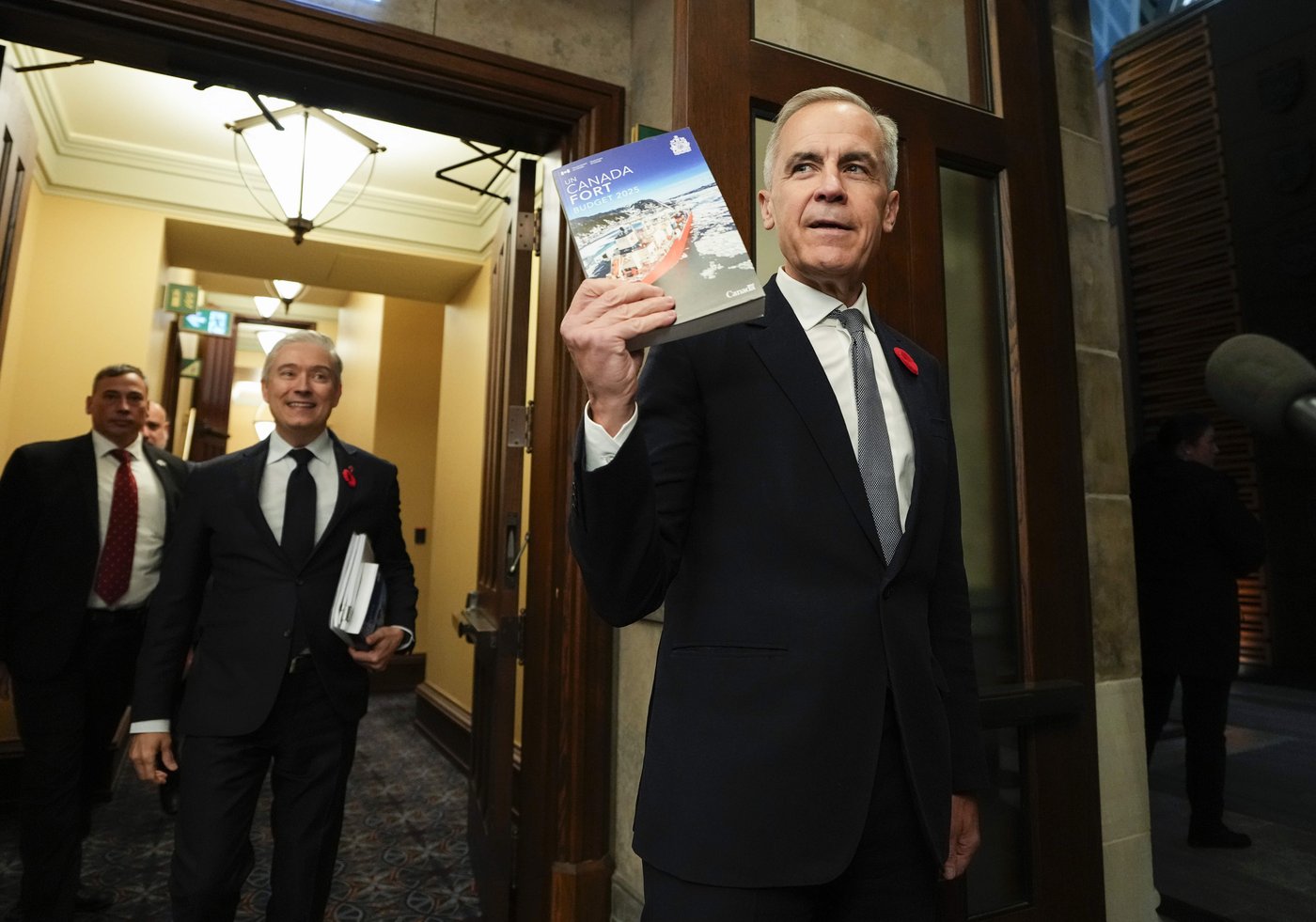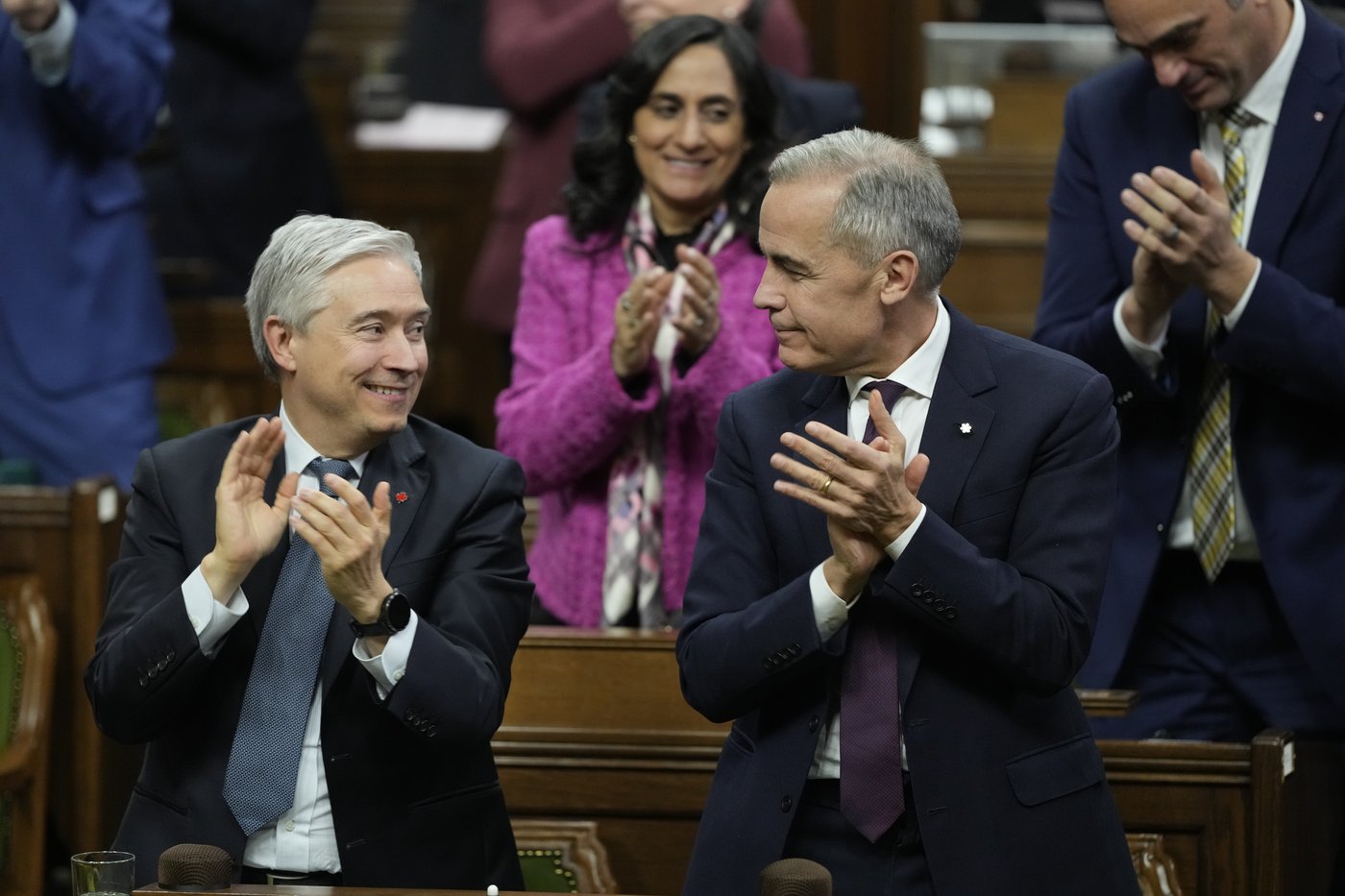Elevate your local knowledge
Sign up for the iNFOnews newsletter today!

OTTAWA — Prime Minister Mark Carney’s government narrowly survived a crucial budget vote Monday evening, one that could have sent Canadians to the polls this winter but instead propped up the minority Liberal government.
Members of Parliament ended weeks of drama and speculation about the Carney government’s fate by voting 170 to 168 on a confidence motion that expressed support for the fall federal budget.
Carney was elected in the spring on a campaign to end U.S. President Donald Trump’s tariff war, but only secured a minority government mandate — leaving the Liberals scrambling to secure support for Carney’s signature budget for weeks.
Two opposition MPs each from the Conservatives and the New Democrats did not cast votes in the House of Commons, which was key to preventing the government from falling. Those were NDP MPs Lori Idlout and Gord Johns, and Conservative MPs Shannon Stubbs and Matt Jeneroux.
Both parties otherwise voted en masse against the budget, as did the Bloc Québécois.
While interim NDP leader Don Davies railed against the budget as bad policy, he at the same time said there is “strong consensus in this country that Canadians do not want an election basically six months after the last one.”
“We have serious economic issues. Mr. Trump is changing his mind every day and it’s not the right time for our country to plunge into an election,” Davies told reporters shortly after the vote.
Davies defended the abstentions in his party as routine, then bristled when asked why the NDP was propping up the Liberals once again.
“There are abstentions on the Conservative side, too. Are they propping up the government? Why don’t you go ask (Conservative Leader) Pierre Poilievre?”
After Poilievre ducked out of the chamber for the night, he did not appear before the television cameras to speak with media after the vote.
Speaker Francis Scarpaleggia, who did not cast a vote and does not normally do so, has the ability to cast a tiebreaking vote, which means he could have prevented the government from falling if just two of the abstaining MPs from either party had cast theirs against the Liberal motion.
In a dramatic turn just hours before the vote, Carney garnered support from Green Party Leader Elizabeth May by committing to the House of Commons that Canada will meet its Paris Accord climate commitments.
In an exchange with May in the House, Carney pledged for the first time to meet Canada’s Paris climate commitments.
“We will respect our Paris commitments for climate change and we’re determined to achieve them,” Carney told the House.
Just last week, May said she could not support the budget without significant changes to environmental policy in the document. But she said Monday that Carney’s “firm commitment” to the Paris targets swayed her.
“Against what I had expected to say to you today, I’m going to vote yes,” she told reporters after question period.
Signed in 2015, the Paris agreement calls on countries to limit greenhouse gas emissions to keep average global warming to well below two degrees Celsius above pre-industrial levels. For Canada, that includes a 2030 target to cut emissions to 40 per cent below 2005 levels.
Nova Scotia MP Chris d’Entremont had also amped up the drama over the controversial budget weeks ago, when he crossed the floor from the Conservative benches to join the government side, securing the Liberals another House vote.
Even amid all the political theatrics and high-stakes manoeuvring, there were telltale signs all along that the budget would ultimately pass.
While the Conservatives and Bloc Québécois had indicated in advance they would not support the budget, four Conservative MPs did not vote on amendments to the budget last week that were also considered confidence matters. While most cited technical issues or other reasons to explain their absence from the vote, Alberta Conservative MP Matt Jeneroux did not.
Jeneroux, who did not participate in Monday’s vote either, had abruptly announced his intention to resign as an MP earlier this month amid rumours he was being courted to join the Liberals.
Jeneroux’s initial resignation announcement did not give a date for his departure. Poilievre later said on social media that Jeneroux will be resigning in the spring. Following Poilievre’s statement, Jeneroux said he still didn’t have a date for his departure but it would be “likely this spring.”
The Conservatives had meantime dined off of the drama over the prospect of an early election for weeks, warning their core supporters that another contest could be just around the corner with near-daily reminders in their fundraising emails.
On Monday, both parties solicited funds from their grassroots to fill up party war chests over the prospect of an early election, while pointing fingers at the other for threatening to drag the country back to the polls years ahead of schedule.
“If (the budget) fails, we’ll be launched into a weeks-long costly winter election that will require every Liberal pitching in to ensure we can power our teams across the country,” Azam Ishmael, Liberal party national director, wrote in an email Monday.
This report by The Canadian Press was first published Nov. 17, 2025.
— With files from Sarah Ritchie and Craig Lord

Want to share your thoughts, add context, or connect with others in your community?
You must be logged in to post a comment.